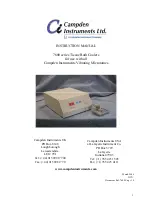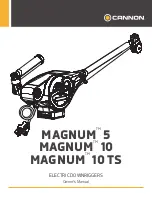
7.4.1.1 Automatic Focus Detection and Analysis
In the past, fiber connector end-face inspection not only required a good Fiber Microscope (Fiber Scope), but certain amount of
knowledge and hand-eye dexterity from the user. Results were prone to inconsistencies, subject to interpretation and PCs were
required for post analysis against the criteria set forth by the IEC 61300-3-35 Sect 5.4 standard.
VeEX has made the task easier, faster and foolproof, with the introduction of its patent-pending revolutionary Automatic Focus
Detection technology. Turning ordinary digital fiber scopes, like DI-1000, into accurate semi-automated inspection systems. All with the
help of TX300S, FX300, RXT-1200, MTTplus or SunLite OTDR test sets.
Instead of adding the extra complexity, fragility, cost, size and weight of other electromechanical focusing systems currently available
in the market, VeEX’s auto focus detection technology still relies on the incredible fast response and finesse of human hands, but
leave the focus assessment, image capturing and analysis to the test set. Users could even try with their eyes closed and still achieve
a perfectly focused image of the connector end-face in a few seconds. Moreover, users would still remain in control during non-trivial
scenarios requiring the irreplaceable human dexterity and ingenuity.
7.4.1.2 Main Advantages of Automatic Focus Detection
Investment protection (no need to replace existing scopes, like DI-1000, with a more expensive ones)
It’s a simple software option upgrade to the test set
Much faster focus, acquisition and analysis, compared to slow electro-mechanical auto-focusing scopes
Robustness: Less moving parts and no internal motors makes a better choice for field applications
No training necessary, yet get it right every time
Smaller scope size
Report generation (html and PDF)
The test set detects when the image has reached optimal focus level, automatically freezes the picture, captures the image and
runs the IEC 61300-3-35 analysis
No need to move hands or press any buttons (movement and vibration are common causes of focus loss)
No PC required for image acquisition or Pall/Fail analysis
7.4.1.3 The Importance of Fiber Connector Inspection
Dirty or scratched connectors introduce loss, increase ORL and/or damage other connectors (Loss becomes more critical at higher
data rates). End-face contamination is a leading cause of fiber link failures in data centers, corporate networks, MSOs and Telecom
environments.
Fiber Inspection Scopes provide a magnified image of the fiber optics connector’s End Face, focusing on the contact areas (prone to
loss or damage by mating). Images, visual inspection and automated tools are often used to grade the health and cleanliness of
connectors, after polishing or cleaning and before being used.
7.4.1.4 Fiber Connectors and Test Gear Vulnerabilities
Opposed to the permanent or semi-permanent connections often found in network environments, “promiscuous” Test Equipment and
their patch cords connect to multiple devices on a daily basis, increasing the chances to damage or get damaged. Extra care must be
taken, not only to avoid potentially expensive damage, but to make sure that any tests and their results remain valid. Bad fiber or
dirty/damaged connectors can result in false anomalies, defects or errors, even expensive repairs.
7.4.1.5 About the DI-1000 Fiber Inspection Scope
Digital Fiber Inspection Probe
Native USB 2.0 (no adapters required, no image degradation)
Compatible with existing UX400, TX300S, FX300, RXT-1200, MTTplus and SunLite OTDR
Precise and stable single-finger focus knob for one hand operation
Blue light source for better contrast
400X magnification
Interchangeable tips – Most commonly used tips are available (FC, SC, LC, ST, MTP, E2000, including PC, APC, 60° angled
tips, among others)
Compatible with VeEX test sets offering built-in Auto Focus-Detection & Analysis
Ergonomic design
7.4.1.6 Fiber Connector Inspection Setup
The Setup tab allows basic settings
MTTplus e_Manual D07-00-096P RevA00
Page 48 of 66
Summary of Contents for MTTplus
Page 1: ...MTTplus e_Manual D07 00 096P RevA00 Page 1 of 66...
Page 7: ...3 1 MTTplus Overview Side View Go back to TOC MTTplus e_Manual D07 00 096P RevA00 Page 7 of 66...
Page 21: ...Web Browser Password Prompt MTTplus e_Manual D07 00 096P RevA00 Page 21 of 66...
Page 40: ...Go back to TOC MTTplus e_Manual D07 00 096P RevA00 Page 40 of 66...
Page 46: ...Go back to TOC MTTplus e_Manual D07 00 096P RevA00 Page 46 of 66...















































